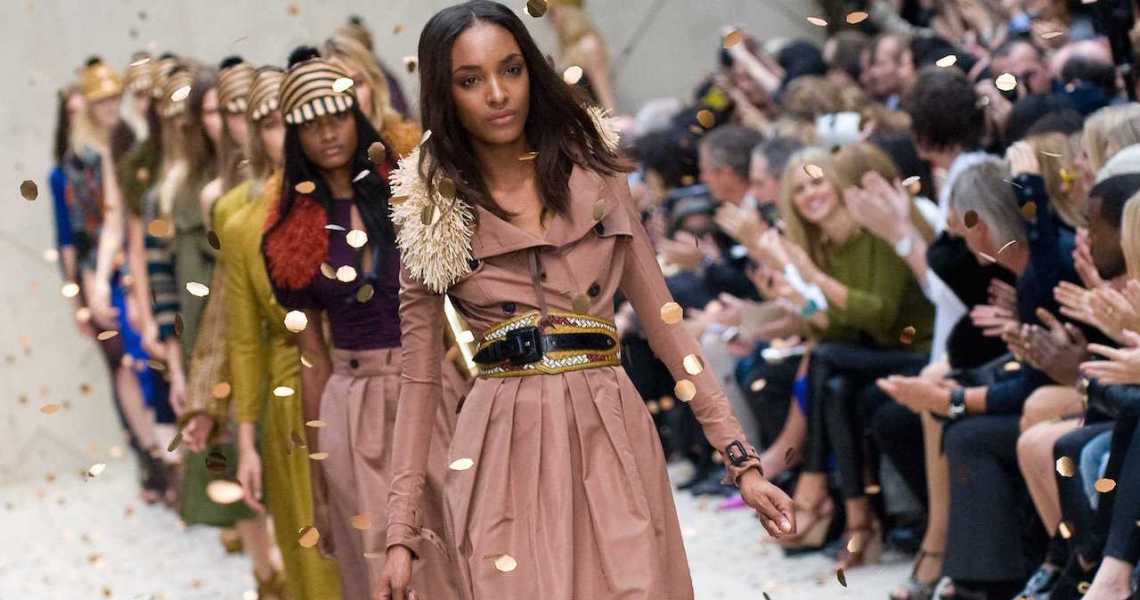The past few weeks have seen fashion companies reckoning with their track records of in-house diversity, which in many cases have been less than stellar. There are a number of factors that contribute to fashion’s whiteness, particularly in the upper levels of management, and it starts at the bottom rungs of the company. One factor stifling diversity is unpaid internships.
Many internships are unpaid, only a certain subset of people — typically white and wealthy — can afford to work part- or full-time for free. The median wealth of the average American white family is 12 times higher than Black families, according to the Economic Policy Institute. By filtering out those candidates who can’t work for free, fashion companies are undercutting diversification before it can even start. Internships are a valuable entry-point for people new to the industry. Paid internships lead to full-time jobs 65% of the time, while unpaid internships only 39% of the time, according to the National Association of Colleges and Employers.
Glossy spoke to a young Black woman, who has had three internships in the industry in the last year, to talk about what effect unpaid work has on fashion’s diversity problem and on the young generation of future fashion workers. She is a recent college graduate who has interned with two major fashion stylists and at a mid-size fashion brand. She asked that both she and the places where she worked not be identified, so as not to burn any professional bridges.
Are you interning anywhere right now?
I was, but I’m not currently because of Covid. I moved to New York last year while I had a few online classes left to finish before I graduated. I figured I could intern and get some experience while I do that. It really sucks that so many companies rely on free labor, because New York is not a cheap place to be. A lot of the places I’ve interned required at least a three-day-a-week commitment, which is a lot of time to be working for free. Not only that, but there’s [also] this unspoken thing. They make you feel like you have to go above and beyond, or else you’re not giving your all and they’re less likely to give you a full-time job.
What was your experience like?
It varies. At two of them, I was doing PR work or picking up deliveries around the city for photo shoots, or dropping things off. At one place, [a fashion brand,] I was basically a glorified maid. People asked me to do things that had nothing to do with the skills I was there to learn. I didn’t feel like I was learning or growing or anything like that.
It was all unpaid, of course. No pay, no stipend. The brand I worked at did have a kitchen with little stuff for me and the five or six other interns, but if you wanted to eat a real meal, you were on your own.
Once, I was going to go to a photoshoot where Bella Hadid [was the model], but I had a bad feeling about it and I didn’t go. It turned out that the shoot was outside in the winter, and it was freezing that day. I just remember my boss being so baffled that I didn’t want to go stand in the cold for free. I’m worth more than that. And it can be demoralizing to be forced to do all this grunt work for free. And then I look like a bitch for saying no to demoralizing things like that.
Ad position: web_incontent_pos1
Does the fact that it’s unpaid affect who can work those jobs?
Absolutely. You have to already have money in order to be able to work things like that. It really hurt to talk to some of the other assistants and interns, who were talking about going out and doing this and that, and having to tell them “I can’t do that” because I couldn’t afford it. It sucked. And they didn’t really care or realize that sometimes.
At one place, [interning for a stylist and editor at a major fashion magazine,] I was interning part-time for free and working part-time at another job to pay rent. I ended up quitting that job, and when I told my boss, she was like, “Great, now you can come intern for us five days a week.” And I had to say no, because I can’t afford to work full-time for free!
There’s another element to all this. I’m Black, and at a lot of the places I’ve interned, I was the only [Black person], or there’s only a few people and everyone else is white. No one ever said or did anything explicitly racist, but there’s just this uncomfortable energy sometimes. Once, I had to go pick up some expensive watches from the Upper East Side for a shoot, and the people in the boutique, I could just tell they didn’t believe me. They didn’t believe I was who I said I was. I also have a pretty white-sounding name, so I can see on people’s faces that they’re surprised by what I look like when they meet me. It all contributes to this culture where, if you’re not rich and white, it’s a lot harder.
How has all this affected your desire to keep working in fashion?
I want to keep working in the industry. Right now, it’s really difficult, but hopefully once things settle down, it will be easier to get back into it. But it’s hard to keep working for free. Last September, I met this guy who got me a little work on a shoot at Fashion Week that ended up in a big magazine, and I got my name in the credits in the magazine, which was great. But I didn’t get paid anything for it. There are just a lot of barriers to entry.




